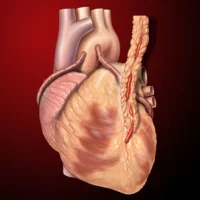During this study, researchers used data from the American Heart Association's Get With the Guidelines-Resuscitation (GWTG-R) programme and analysed 35,283 patients with IHCA treated at 261 U.S. hospitals.They calculated a hospital process composite performance score for IHCA using a five guideline-recommended process measure. Scores were calculated for all patients.
The findings showed that the IHCA hospital process composite performance was associated with risk-standardised hospital survival to discharge rates: 21 percent, 21 percent, 23 percent, and 23 percent from lowest to highest performance quartiles, respectively. Each 10 percent increase in the process composite performance was associated with a 22 percent higher odds of survival. In addition, the hospital process composite quality performance was associated with a favourable neurologic status at discharge.
According to the study researchers, if all hospitals operated at the level of the highest-performing hospital, an additional 22,990 to 24,200 lives could be saved per year. This indicates the importance of timely and high-quality care for IHCA.
“Significant opportunities remain for improving adherence to guideline-recommended care overall and with individual process-of-care measures. Of importance, enhancing process quality of care may improve outcomes for the many patients with IHCA.”
Source: JAMA Cardiology
Image Credit: YouTube










